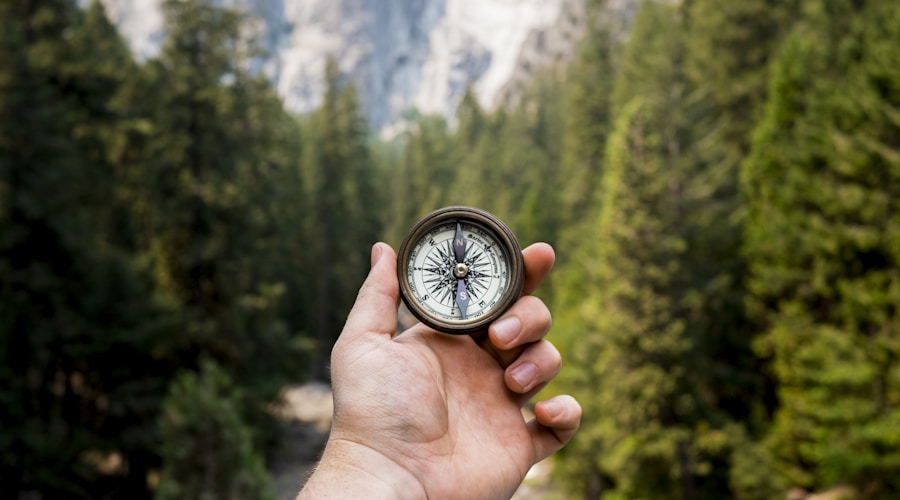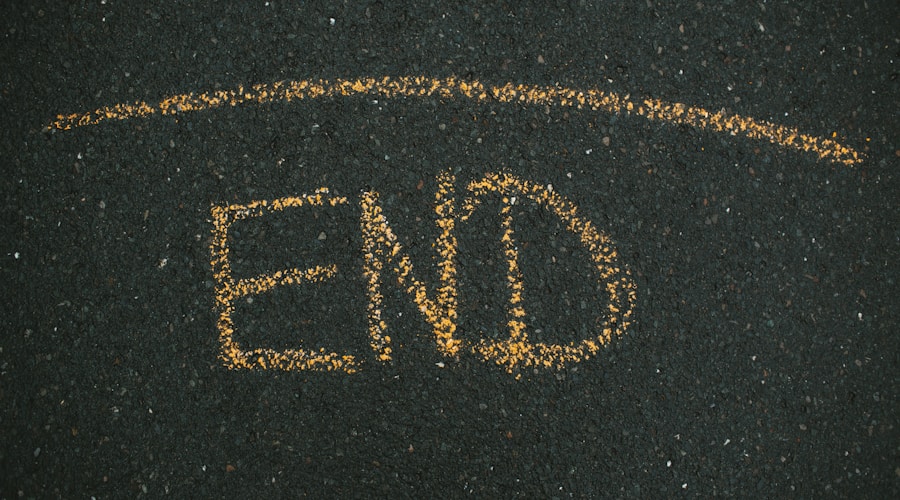Welcome to a fascinating journey into the intertwined world of creativity and curiosity. This article will escort you through the intriguing relationship between these two essential elements and how they contribute to the growth and innovation of the human mind.
"Curiosity is the spark behind the spark of every great idea. The future belongs to the curious." - Author Unknown
Throughout history, curiosity has been the driving force behind countless groundbreaking discoveries, inventions, and creative endeavors. From Isaac Newton's apple-inspired theory of gravity to Marie Curie's groundbreaking research on radioactivity, curious minds have changed the course of human history.
As you delve into this article, keep in mind that the power of creativity and curiosity lies within you. It's our innate human nature to question and seek answers, and through this exploration, we can uncover the hidden potential that lies within each one of us.
Join us as we embark on this enlightening exploration into the world of creativity and curiosity, and discover how questions can unlock the untapped potential of the human mind.
Introduction to Creativity and Curiosity
Welcome to the fascinating world of creativity and curiosity! Have you ever wondered about the hidden link between these two powerful traits? How can curiosity fuel your creativity and lead to innovative breakthroughs? In this article, we will unravel the profound connection between curiosity and creativity and explore the role of questions in unlocking your creative potential.
As Albert Einstein once said, "I have no special talents. I am only passionately curious." This sentiment reflects the intrinsic relationship between creativity and curiosity. When you allow your curiosity to drive your actions, you open yourself up to a world of endless possibilities. Whether you're an artist, a scientist, an entrepreneur, or simply a curious individual, understanding the synergy between curiosity and creativity can transform the way you approach your work and life.
Throughout history, curious minds have been the driving force behind groundbreaking innovations and artistic masterpieces. From Leonardo da Vinci's insatiable curiosity about the workings of the human body to Steve Jobs' relentless pursuit of innovative technology, curiosity has been a common thread weaving through the fabric of creative genius.
As you delve into the depths of creativity and curiosity, you'll discover that the power of questions lies at the heart of this dynamic relationship. By asking the right questions, you challenge the status quo, seek new perspectives, and pave the way for novel ideas to flourish. This article will take you on a journey to uncover how questions can catalyze your creative thinking and propel you toward innovative solutions. So, buckle up and get ready to embark on a transformative exploration of the hidden link between creativity and curiosity.
The Role of Questions in Creative Thinking
When it comes to creativity, asking the right questions is just as important as finding the right answers. Questions have the power to spark new ideas, challenge existing assumptions, and pave the way for innovative solutions. As Picasso once said, "Computers are useless, they can only give you answers." The quest for creativity starts with asking the right questions1 .
By asking thought-provoking questions, you can stimulate your mind and ignite your imagination. When you ask yourself, "What if?" or "Why not?" you open yourself up to new possibilities and perspectives. According to Warren Berger, author of "A More Beautiful Question," "The best questions are not the ones with easy answers. They are the ones that challenge and disrupt the status quo."
Moreover, asking questions encourages divergent thinking, which is essential for creative problem-solving. In the words of Beth Comstock, former Vice Chair of General Electric, "curiosity is the spark behind every great idea. The future belongs to the curious."
Asking questions also helps you break free from conventional thinking and explore unconventional pathways. Steve Jobs once said, "Innovation comes from people meeting up in the hallways or calling each other at 10:30 at night with a new idea, or because they realized something that shoots holes in how we've been thinking about a problem."
In essence, questions are the gateway to creative thinking. They have the power to challenge the status quo, ignite your imagination, and drive innovation. So, the next time you find yourself in a creative rut, remember the words of Albert Einstein: "The important thing is not to stop questioning. Curiosity has its own reason for existence."
How Curiosity Fuels Innovation
When you think about the most innovative companies in the world, what sets them apart? It's not just their resources or their talented employees, but their relentless curiosity. As Steve Jobs once said, "Innovation distinguishes between a leader and a follower."
Curiosity fuels innovation by driving us to ask questions, challenge the status quo, and seek new and better solutions. It's the spark that ignites the fire of creativity and pushes us to think outside the box. When you're curious, you're not content with the way things are—you're constantly seeking improvement and progress.
Innovation often starts with a simple question. Consider the case of Airbnb, one of the most successful startups of the past decade. It all began when the founders, Brian Chesky and Joe Gebbia, asked themselves, "What if you could book a place to stay with just a few clicks?" Their curiosity led to the creation of a game-changing platform that revolutionized the hospitality industry.
In a similar vein, Sara Blakely, the founder of Spanx, revolutionized the undergarment industry through her curiosity. She once said, "I think my story says that, when women are given the chance and the opportunity, that we can achieve a lot. We deliver. We can make the world a better place, one butt at a time."2
Curiosity fuels innovation by driving us to explore uncharted territories, question assumptions, and experiment with new ideas. It compels us to seek knowledge, embrace uncertainty, and harness the power of imagination. In the words of Walt Disney, "We keep moving forward, opening new doors, and doing new things, because we're curious and curiosity keeps leading us down new paths."3
In essence, curiosity is the driving force behind innovation. It propels us to push the boundaries of what's possible, challenge the norms, and create a better future for ourselves and others.
The Brain's Quest for Knowledge
Our brains are naturally wired to seek out new information and experiences. Have you ever wondered why you feel so satisfied when you finally figure out the answer to a question that has been bugging you? It turns out that our brains are constantly on a quest for knowledge, and this quest is driven by curiosity.
According to neuroscience researcher Matthias Gruber, "Curiosity puts the brain in a state that allows it to learn and retain any kind of information, like a vortex that sucks in what you are motivated to learn, and also everything around it."

Encouraging Curiosity to Enhance Creativity
Encouraging curiosity is essential in enhancing creativity. By nurturing your natural sense of wonder and inquiry, you open yourself up to new possibilities and ideas. Albert Einstein once said, "I have no special talent. I am only passionately curious." This demonstrates the power of curiosity in driving creative thinking.
One way to encourage curiosity is by embracing the unknown and being open to learning from unexpected sources. Author and educator, Sir Ken Robinson, emphasized the importance of curiosity by stating, "Curiosity is the engine of achievement." This highlights how curiosity can fuel your creative endeavors and push you to explore new paths.
Another effective method to foster curiosity is by asking questions and seeking to understand the world around you. Dr. Frances Rauscher, a leading expert in cognitive psychology, stated, "Curiosity doesn’t just allow you to ask questions; it also allows you to actually seek answers." By asking questions, you actively engage with your surroundings and seek out new knowledge, which can spark innovative ideas and solutions.
Additionally, creating a supportive environment that encourages curiosity can significantly enhance creativity. By surrounding yourself with people who embrace curiosity and value questioning, you can cultivate an atmosphere ripe for creative growth. As journalist and author Warren Berger noted, "Curiosity is the spark behind every great idea" - by prioritizing curiosity in your personal and professional circles, you can ignite the flame of creativity within yourself and others.
In conclusion, encouraging curiosity is vital in enhancing creativity. By embracing the unknown, asking questions, and fostering a supportive environment, you can unleash the full potential of your creative thinking. Remember, as writer Suzanne Scotchmer expressed, "Curiosity about life in all of its aspects, I think, is still the secret of great creative people." So, don't be afraid to ask questions and let your curiosity lead you towards greater creative achievements.
Real-Life Examples of Curiosity-Driven Success
Real-Life Examples of Curiosity-Driven Success
Curiosity has been a driving force behind some of the most successful and innovative individuals in history. From inventors to entrepreneurs, the power of curiosity has propelled them to great heights.
One such example is that of Steve Jobs, co-founder of Apple Inc. Known for his insatiable curiosity, Jobs once said, "You have to be burning with an idea, or a problem, or a wrong that you want to right. If you're not passionate enough from the start, you'll never stick it out."
Another individual who exemplifies the link between curiosity and success is Elon Musk, CEO of SpaceX and Tesla. Musk's relentless curiosity has led him to pursue ambitious, groundbreaking projects. He once stated, "I think it is possible for ordinary people to choose to be extraordinary."
These real-life examples demonstrate how curiosity fuels innovation and drives individuals to push the boundaries of what is possible. By asking questions and seeking answers, these visionaries have made remarkable contributions to the world.

Cultivating a Habit of Inquiry for Creative Growth
Cultivating a Habit of Inquiry for Creative Growth
So, how can you cultivate a habit of inquiry to enhance your creativity? It starts with embracing the mindset of a curious child—always asking questions, seeking new information, and being open to learning. As Albert Einstein once said, "The important thing is not to stop questioning. Curiosity has its own reason for existing."
Here's how you can start:
Stay Curious: Keep asking questions about the world around you. Whether it's about a new technology, a cultural practice, or a scientific discovery, your curiosity fuels your creative thinking.
Seek Diverse Perspectives: Engage with people from different backgrounds and cultures. As Maya Angelou wisely noted, "It is time for parents to teach young people early on that in diversity there is beauty and there is strength."
Embrace Failure: As you explore new ideas, be open to the possibility of failure. Sara Blakely, the founder of Spanx, once said, "The more you fail, the more you realize there's nowhere to go but up."
Practice Mindfulness: Take time for introspection and reflection. In the words of Steve Jobs, "Don't let the noise of others' opinions drown out your own inner voice."
5.Take Risks: Venture beyond your comfort zone and be willing to take calculated risks. According to Tony Hsieh, the former CEO of Zappos, "You have to take risks if you want to find new ideas."
By cultivating these habits, you'll find yourself on a continuous journey of learning, discovery, and creativity. As you welcome a spirit of inquiry into your life, you'll be amazed at the innovative ideas and solutions that emerge.
Conclusion
Congratulations! You've now unlocked the hidden link between creativity and curiosity. By recognizing the power of questions and fostering a sense of wonder, you've opened the door to limitless creative potential. As you continue on your journey, remember the wise words of Albert Einstein: "The important thing is not to stop questioning. Curiosity has its own reason for existing."
Keep nurturing your curiosity and never underestimate the impact of a simple question. As you delve into the world of creativity, your inquisitiveness will fuel your innovation and inspire others around you. So, go ahead and ask, explore, and discover. Your creative journey has just begun.

2Steve Jobs, "The Innovation Secrets of Steve Jobs" (2010)
3Sara Blakely, interviewed by Forbes, "The Happiest Millionaire" (2012)
4Walt Disney, "Walt Disney: An American Original" (2013)
5Matthias J. Gruber, What is the role of the brain's dopamine system in learning and memory? (2017)
6Ken Robinson, "The Element: How Finding Your Passion Changes Everything" (2009)
7Frances Rauscher, "Curiosity: How Science and Inquiry Spark Creativity, Breakthroughs, and Discoveries" (2020)
8Warren Berger, "A More Beautiful Question: The Power of Inquiry to Spark Breakthrough Ideas" (2014)
9Suzanne Scotchmer, "Innovation and Incentives" (2004)
10Walter Isaacson, Steve Jobs (2011)
11Elon Musk, Interview with Robinhood Snacks (2020)
12Walter Isaacson, Einstein: His Life and Universe (2007)
13Mihaly Csikszentmihalyi, Creativity: Flow and the Psychology of Discovery and Invention (1996)
